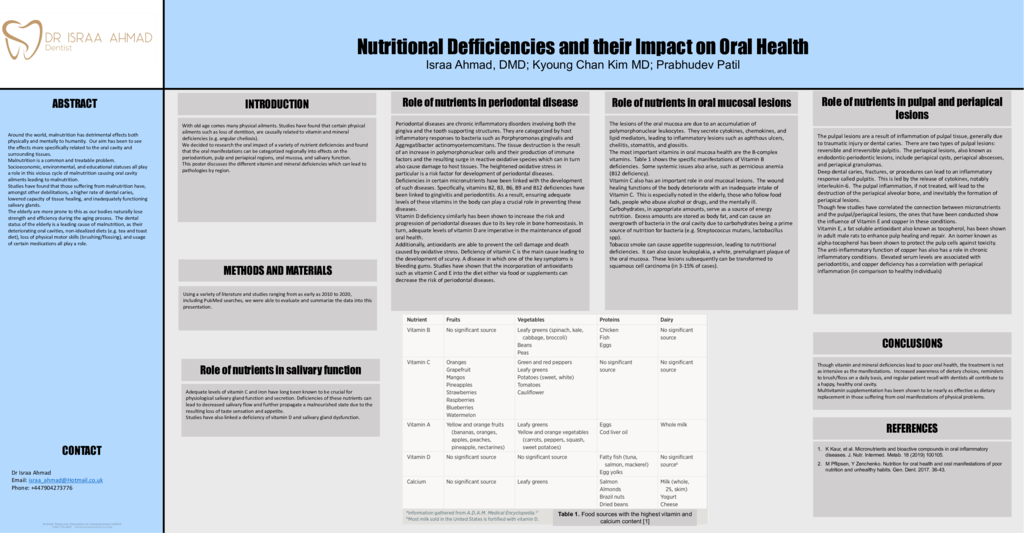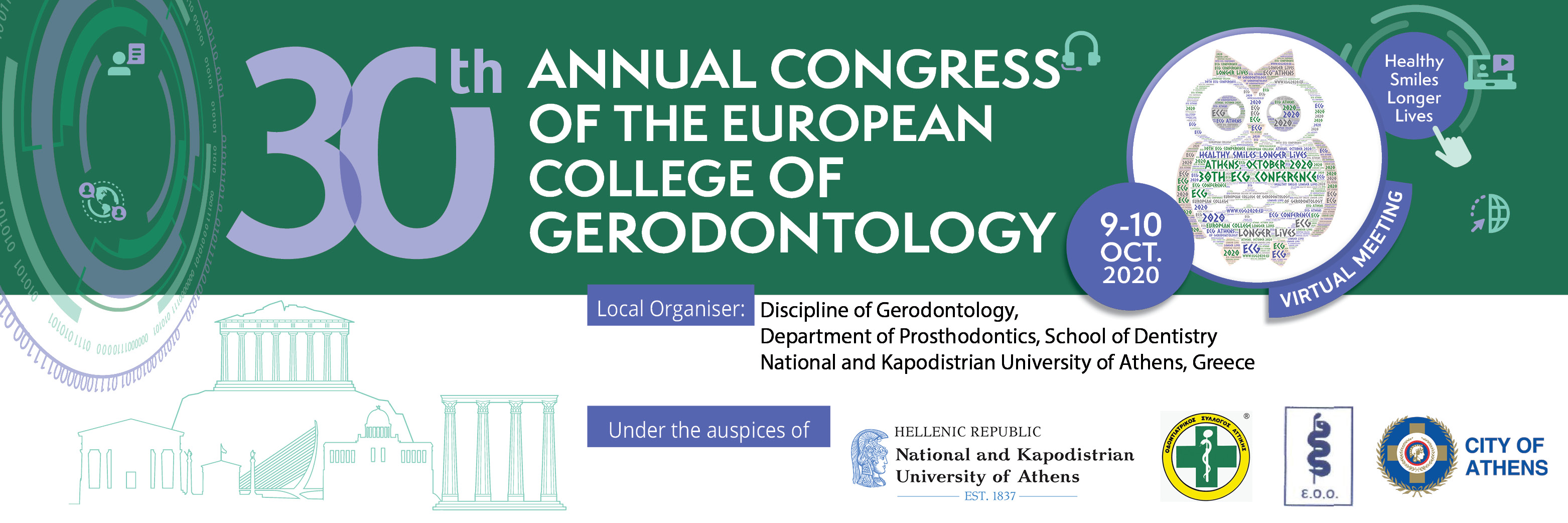Background and Aim: Around the world, malnutrition has detrimental effects both physically and mentally to humanity. Our aim has been to see the effects more specifically related to the oral cavity and surrounding tissues. Malnutrition is a quite common, and treatable, problem. Socioeconomic, environmental, and educational statuses all play a role in this vicious cycle of malnutrition causing oral cavity ailments leading to malnutrition. Studies have found that those suffering from malnutrition have, amongst other debilitations, a higher rate of dental caries, lowered capacity of tissue healing, and inadequately functioning salivary glands. The elderly are more prone to this as our bodies naturally lose strength and efficiency during the ageing process. The dental status of the elderly is a leading cause of malnutrition, as their deteriorating oral cavities, non-idealized diets (e.g. tea and toast diet), loss of physical motor skills (brushing/flossing), and usage of certain medications all play a role. Methods: Using a variety of literature and studies ranging from as early as 2010 to 2020, including PubMed searches, we were able to evaluate and summarize the data into this presentation. Results: Studies have found that certain physical ailments are causally related to vitamin and mineral deficiencies (e.g. angular cheilosis). Our research has shown that we can categorize these effects regionally by the periodontium, pulp and periapical regions, oral mucosa, and immediately surrounding tissue. Vitamin B deficiencies led to oral mucosal lesions, along with some specifics such as periodontal lesions, glossitis, recurrent aphthous stomatitis. Vitamin C deficiency leads to scurvy and impaired wound healing. Vitamin D deficiency leads to bone abnormalities, delayed eruption, and poor calcium metabolism. Multivitamin supplementation has been shown to be nearly as effective as dietary replacement in those suffering from oral manifestations of physical problems. Conclusions: Though vitamin and mineral deficiencies lead to poor oral health, the treatment is not as intensive as the manifestations. Increased awareness of dietary choices, reminders to brush/floss on a daily basis, and regular patient recall with dentists all contribute to a happy, healthy oral cavity.
- 41 views



